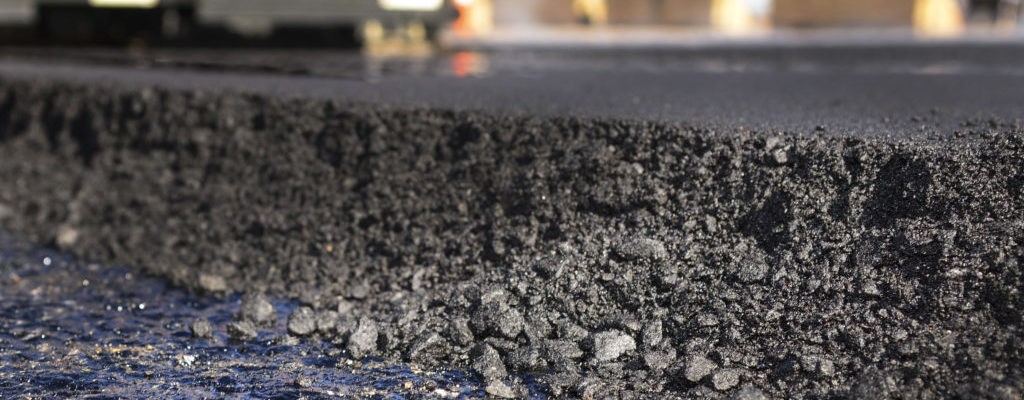- 0 Like
- 0 Comments
- By admin
- Asphalt Know How, Uncategorized
Fresh asphalt is laid over a tack coat, an adhesive used to bind fresh asphalt to the ground on Barksdale Air Force Base, La., Feb. 11, 2016. Asphalt construction is only performed when the temperature is 50 degrees or more. (U.S. Air Force photo/Senior Airman Benjamin Raughton)
Asphalt, also known as bitumen, is a sticky, black, and highly viscous liquid or semi-solid form of petroleum. It may be found in natural deposits or may be a refined product, and is classed as a pitch. Asphalt properties change with temperature, which means that there is a specific range where viscosity permits adequate compaction by providing lubrication between particles during the compaction process.
Composition
It is made from a mixture of aggregates, binder, and filler. Aggregates are processed mineral materials such as crushed rock, sand, gravel, slags, or various recycled materials. Binder is used to unite the aggregates together to form a cohesive mixture. Bitumen is most often used as the binder. Asphalt pavement consists of multiple layers which includes unbound and bituminous-bound materials acting as the base for the asphalt concrete poured on top.
Types
There are 3 major types of asphalt mixes: hot, warm, and cold. These different kinds can be manufactured to create even further distinct mixtures as well to best meet the needs of a project’s end goal. Meeting the needs of a high traffic road or a parking lot enduring tough weather conditions would require their own specific asphalt mixture solution. Asphalt must be able to be both stiff and resistant to distortion, as well as flexible and strong enough to resist cracking. The stiffness and resistance to distortion allows the asphalt to be able to handle applied pressure from motor vehicles; the flexural strength prevents damage occurring from contrasting pressures exerted on the asphalt.
Quality
The quality of your paving solution matters. Quality directly impacts how long and how well your asphalt surfacing will hold up against the weather elements and repeated use over time. Great asphalt contractors are always keeping up with the latest advances in technology and maintain high quality control measures. This improves safety, efficiency, and value. In order to create the highest quality asphalt, total quality management starts from the moment aggregate materials are collected and processed. All aggregated materials used in asphalt paving solutions must be durable and angular to resist early wearing. Different sized aggregates must be used to create the optimal surface and all aggregates must be tested against various, rigorous standards to ensure quality.
The industrial and commercial asphalt world is always changing. Please like this article, share this article, or visit us at https://arnoldasphalt.com.

